Charles Dickens’s novels are far more crowded with orphaned children than the usefulness of having such malleable and pathetic agents in a work of fiction would seem to demand. In ”David Copperfield” , for example, Em’ly, Traddles, the Orfling, Mrs. Copperfield, Martha Endell, and Rosa Dartle are all orphans; Agnes and Dora have no mother; Steerforth, Heep, Ham, and Annie Strong, as well as David himself, have no father.
Miserable as orphans are, though, there is a worse state; ”not an orphan in the wide world can be so deserted as the child who is an outcast from a living parent’s love,” Dickens writes in ”Dombey and Son”. Apart from David Copperfield, who is made to go through the same experiences, the most obvious parallel to Charles Dickens, the boy worker, is Oliver Twist, the son of a gentleman, who becomes the escaped workhouse orphan, ”a poor houseless, wandering boy, without a friend to help him, or a roof to shelter his head.”
Charles was instructed in his warehouse duties by the young, kind Bob Fagin, whose name is borrowed for the old, shriveled Jewish villain who give Oliver his first lessons in the art of picking pockets. It may well be, as John Bayley has suggested in an essay ”Oliver Twist” that Charles felt about Bob Fagin’s benevolent and protective interferences on his behalf much as Oliver felt about the other Fagin whose affection he wants and needs and yet dreads as the greatest threat to his moral existence; ”So passionate was the young Dicken’s desire for the station in life to which he felt entitles and so terrifying his sense that it was being denied him, that he must have hated the real Fagin for the virtue which he could not bear to accept or recognize in that nightmare world, because it might help to subdue him into it. The real Fagin’s kindness became the criminal Fagin’s villainy.”
In the blacking warehouse Dickens anxiously protected his shaky title, the status conscious ”little young gentleman” with the help of the kindly Fagin, who also looked after him when he was ill. But, ambitious and inflated with snobbism and ego-driven need for the spot-light, Dickens would recall ”the secret agony of my soul as I sunk into this companionship”, and there is no little ingratitude in the liberty he takes by using the name for the wickedest villain.
” One must agree with John Bayley in his essay on ‘Oliver Twist’ when he comments ‘no wonder Fagin the criminal is such an ambivalent figure when the real Fagin’s kindness had, so to speak, threatened to inure Dickens to the hopeless routine of the wage slave’ ”. This seems kinder and truer than the blunt instrument of John Carey’s joking sarcasm in”The Violent Effigy” about the parts of the book when Oliver falls among thieves:’ we should realize…that Dickens is simply reasserting in this part of the novel, the distinction between himself and the low boys in the blacking warehouse. It is a hymn to the purity of the middle-class soul’ ”. ( Philip Horne )
”Among the swarming lot are the facts about how the good Jew Riah got into Our Mutual Friend. It was because a deputation of London ‘s Jewish citizens had pointed out that the bad Jew Fagin in Oliver Twist had worked mischief in their lives. Kaplan supplied that fact. But Bayley, with a typically resonant epithet, supplies the further relevance. “Dickens promised like royalty to put the matter right.” The word “royalty” conveys an insight, based on real events in Dickens’s life. Risen to great rank, Dickens had dispensation to bestow. The author’s achieved position in the real world, and the other world he created while occupying that position, were in complex interplay. Social duty and artistic impulse didn’t always coincide — Riah, a better role model than Fagin, is a far less interesting character — but there is no understanding Dickens without acknowledging the connection.” ( Clivejames.com)
While writing ”Oliver Twist”, Dickens became so absorbed in his work that it was as though he was experiencing rthe events he was describing; he began to suffer a recurrence of the feverish spasms of his boyhood illness. Twice he fel ill during the writing of ”David Copperfield”, the first time when he was about to begin his description of David in the warehouse. Indeed, throughout his life he was subject, in times of stress, to these ago
ng spasms of renal or intestinal colic, that ”unspeakable pain in the side.”As he himself knew, the weeks of misery in the blacking warehouse had helped to make him what he was. At the same time he dreaded the thought of having any further physical contact with the place of his degradation. For years he could never bring himself to go near Hungerford Stairs, and rather than pass the warehouse he would make a wide detour. Walking back from Southwark across Blackfriars Bridge to Camden Town, along the streets he had passed after a visit to his father in the Marshalsea made him cry, even after his eldest child was old enough to speak; and to avoid the smell of the cement that was used on the blacking corks, he would cross the street whenever he drew near a boot blacking factory.
In Dickens, there is alway an inescapable tension between class and virtue wrapped around an anxiety for preservation and safety which ultimately straddles all social conventions. This is seen vividly in Fagin’s witty homily to Morris Bolter, alias Noah Claypole , explaining why crude self interest, though desirable, must be slightly modified. Dickens paraodies the reductive utilitarian concepts of human life and society from Jeremy Bentham in a way that clarifies the central concerns of the novel:
‘Every man’s his own friend, my dear,’ replied Fagin, with his most insinuating grin. ‘He hasn’t as good a one as himself anywhere.’
‘Except sometimes,’ replied Morris Bolter, assuming the air of a man of the world. ‘Some people are nobody’s enemies but their own, yer know.’
‘Don’t believe that,’ said Fagin. ‘When a man’s his own enemy, it’s only because he’s too much his own friend; not because he’s careful for everybody but himself. Pooh! pooh! There ain’t such a thing in nature.’
‘There oughn’t to be, if there is,’ replied Mr. Bolter.
‘That stands to reason. Some conjurers say that number three is the magic number, and some say number seven. It’s neither, my friend, neither. It’s number one.
‘Ha! ha!’ cried Mr. Bolter. ‘Number one for ever.’
‘In a little community like ours, my dear,’ said Fagin, who felt it necessary to qualify this position, ‘we have a general number one, without considering me too as the same, and all the other young people.’
‘Oh, the devil!’ exclaimed Mr. Bolter.
‘You see,’ pursued Fagin, affecting to disregard this interruption, ‘we are so mixed up together, and identified in our interests, that it must be so. For instance, it’s your object to take care of number one–meaning yourself.’
‘Certainly,’ replied Mr. Bolter. ‘Yer about right there.’
‘Well! You can’t take care of yourself, number one, without taking care of me, number one.’
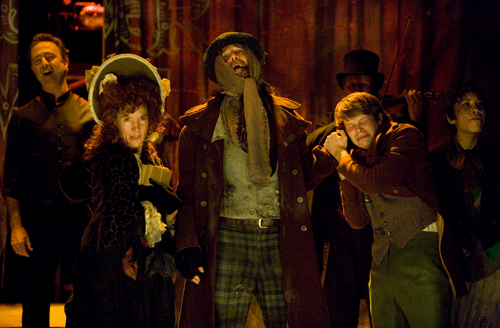
''Jill Hill as Nancy, Geoff Elliott as Bill Sykes, Brian Dare as Oliver, with, background, left to right, Robertson Dean, Endre Balogh and Aurea Tomeski / Craig Schwartz''
G.K. Chesterton on Dickens: ”A saint after repentance will forgive himself for a sin; a man about town will never forgive himself for afaux pas. There are ways of getting absolved for murder; there are no ways of getting absolved for upsetting the soup. This thin-skinned quality in all very mundane people is a thing too little remembered; and it must not be wholly forgotten in connection with a clever, restless lad who dreamed of a destiny. That part of his distress which concerned himself and his social standing was among the other parts of it the least noble; but perhaps it was the most painful. For pride is not only, as the modern world fails to understand, a sin to be condemned; it is also (as it understands even less) a weakness to be very much commiserated.”


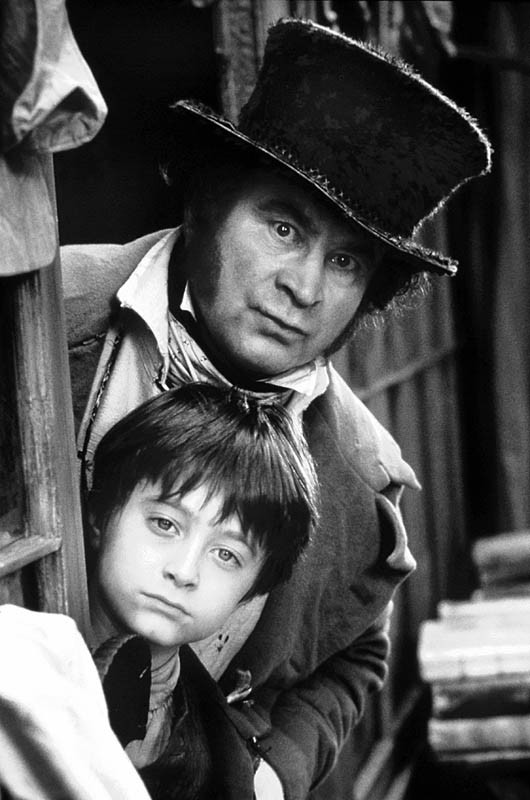
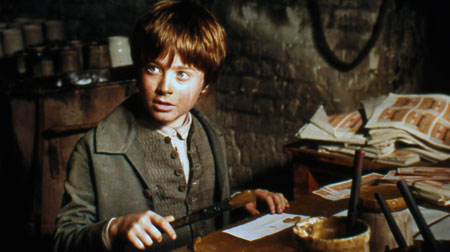
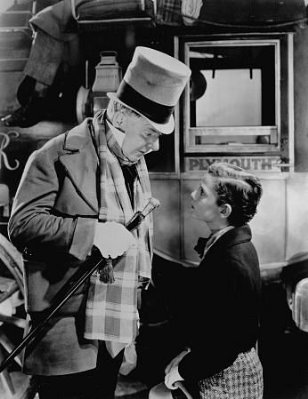
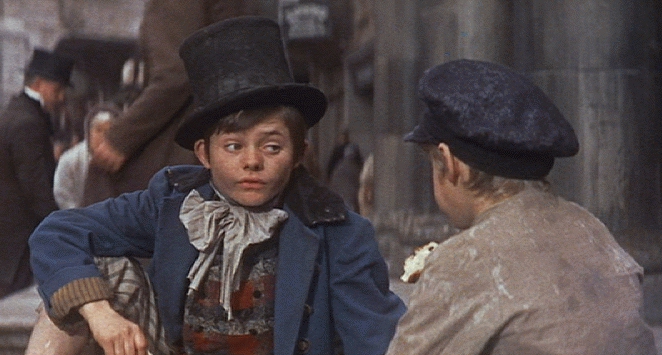
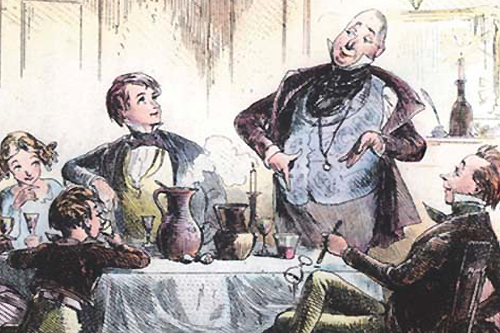



 COMMENTS
COMMENTS
Fascinating, Dave. Did my M.A. on Dickens years ago. Started a comment and realized I want to say more. Will do so in my own blog and refer to yours. Love your posts. Keep ‘em coming!
thanks for reading. I realize that the Dickens ”story” is much more complex as it unfolded over a few blog pieces. Some of the conclusions that were drawn or implied may be a bit rough and premature though.